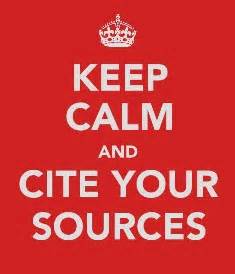
In his article, “When Everything is a Website,” author William Badke explains that to many generation Z students who have little or no history with print, “the meaning behind the traditional distinctions that defined various types of academic literature is vanishing” (p. 48). Many of the library’s commercial databases from EBSCO and Proquest are now designing their platforms to resemble the Google interface that are familiar to students. Thus, students often talk about journal articles and e-books as if they were web results. Part of the job librarians and educators have in teaching information literacy is to help students get a better grasp about the resources they are using, how they came into being, and what type of review process those sources have undergone. They cannot successfully cite sources if they don’t know what those sources are, nor can they learn to evaluate information without solid information literacy skills.